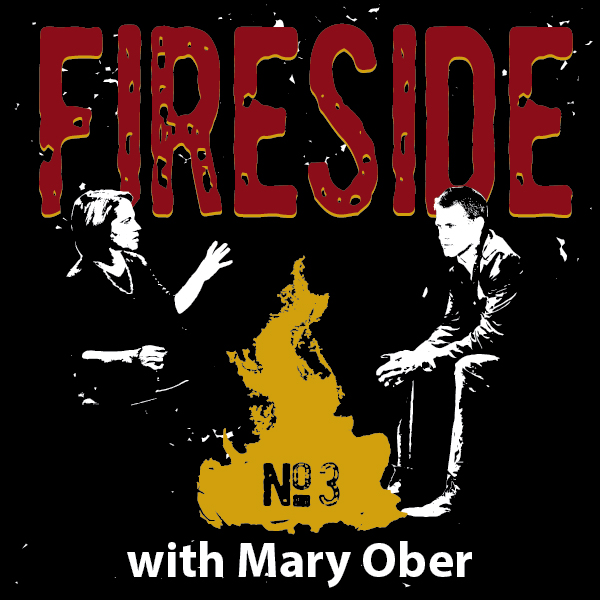
FIRESIDE No. 3 with Mary Ober
Posted on September 20, 2017 by Blake Leath
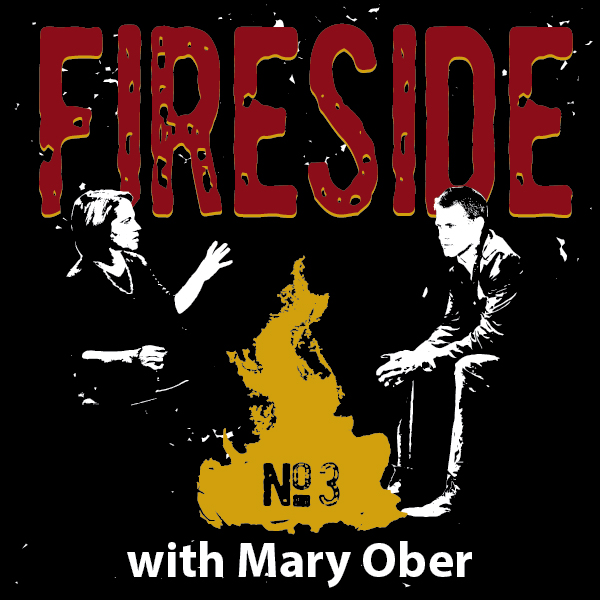
"Vulnerability & authenticity"
l l l
I'm an organizational sociologist, strategist, writer, and teacher, but am—first, foremost, and always—a student of enterprises and those who lead them. In my 2007 book, Cultivating the Strategic Mind, I explored the transition from leader to visionary, creator, and architect of strategy. Today, I continue studying strategists and leaders but am increasingly haunted by what I see as a more fundamental, personal quest: understanding and improving the dying sub-disciplines of management, whether time, conflict, self, or life-management. Leadership gets a lot of glory, but management is the nuts & bolts practices of every day that gets it done. Fireside (which admittedly began as a series of ruminative 1 ½ to 2-hour one-on-one conversations with seasoned management executives reflecting on their life’s work) quickly evolved into dialogues about work within the context of life and life after work. This ricochet took me by surprise, but I found it an exceedingly pleasant one. After all, “Though we hire employees, we get people.” My sincerest hope now is that—in an oft-discouraging world—Fireside might prove a respite, a source of light, warmth, energy, encouragement, safety, nourishment, perhaps even inspiration in your own career or life, whether at home or out in the big, bad world. Around the fireside at the end of the day, it’s clear that we are all in this together, and everyone has a story worth sharing and hearing. You will be the ultimate arbiter, of course, but I predict we shall learn a great deal about management, yes, but even more about ourselves and this enterprise we call life.
l l l
Today's guest is Mary Ober.
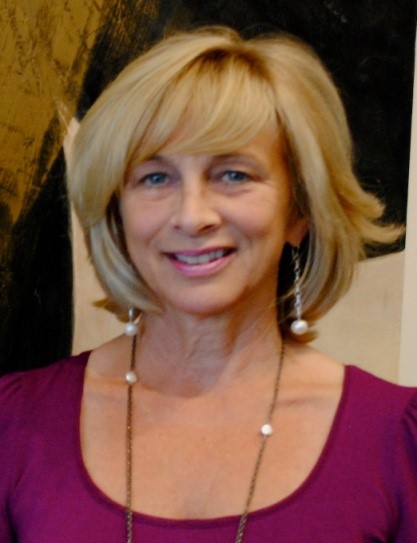
Mary has extensive experience as a Human Resource Executive. Her expertise and passion are in planning and delivering strategic HR practices and programs to increase personal, team, and organizational effectiveness. She has keen knowledge of how organizations work. She hones in on how best to align and link people, processes, and culture to a company’s vision, strategies, and values. She is particularly skilled at coaching decision makers in developing and implementing action plans to bring organizational change to fruition.
Mary moved to Austin in 2006. There, she developed an independent consulting and coaching practice that creates and implements leadership development solutions, organizational analyses, culture assessments and transformations, and the development and facilitation of related training programs.
She lives in the Hill Country with her psychologist husband and crew of four dogs.
Blake Leath: Thank you for joining us today, Mary. I understand you’d like to discuss vulnerability and authenticity. Could you begin by describing why you’ve chosen these two topics?
Mary Ober: Sure. The universe made me do it! [Laughter] You know how sometimes the universe speaks to you in interesting ways, where you’re ambling along—going through life—and then you relent and say, “Okay, okay, I got the message! I hear what you’re saying!” I read your introduction to Fireside a couple weeks ago and began pondering what I might want to explore, and trust is what kept bubbling to the top. I see it presented so often, in so many ways, but that’s because I believe it’s essential to social capital. Margaret Heffernan, Brené Brown, Patrick Lencioni…they, and people like them, continue to remind us how powerful and important trust is.
Blake: And not just in personal relationships, or work relationships, but all relationships, yes?
Mary: Yes, all relationships.
Blake: How do you view the connection, then? The connection between trust and vulnerability and authenticity.
Mary: Trust is the core, the central building block. It is only with—and through trust—that we are able to, first, risk being vulnerable…while also being our authentic selves…without fearing judgment. I don’t know how deeply you want to explore this, but there’s a lot swirling behind trust, vulnerability, authenticity. For example, boundaries. And shame, which stands in many people’s way, keeping them from taking action or doing the things they might otherwise be capable of doing.
Blake: To what extent have you learned about trust from a given manager, or leader? Have you had some role models or mentors along the way who encouraged you to trust more, to lean forward more vulnerably, more authentically?
Mary: I feel I have been so lucky in the corporate world, that I’ve had so many amazing managers and leaders, and I just don’t know why! You hear so many horror stories. I’ve certainly had my share of challenging situations, but I’ve had so many people who trusted in me, who believed in me, who empowered me to work toward my strengths. Now, that’s not to say I didn’t have areas to develop, or didn’t work to develop them, but I experienced so many managers who found great work for me, exposed me to new work and opportunities, and trusted and empowered me.
Blake: Can you give us an example?
Mary: Well, in most of these relationships, we were able to get real with each other. Vulnerability cuts both ways. I’ve had countless conversations, even at the EVP level, where we just found ourselves laughing, breaking down barriers. It’s so great to really see someone for who they are, to be able to do this yourself. To not feel like you have to wear a mask with someone. Great managers create an environment where you can be yourself, your authentic self. They have the ability to pull it out of you. These people were smart, always smart and at the top of their game, but they were—mostly—relational, humble people. I just learned so much from people like that, every step of the way in my career.
Blake: Where does this capacity for an executive or mature manager to be humble come from? Is it trait-based? Did they arrive there through experience? In their formative years? Why is vulnerability so second nature for some, and virtually absent in others?
Mary: I think it’s confidence and comfort in one’s own skin, and you needn’t be a sage—or even old—to be this way. I think it just requires being comfortable with who you are, versus who the world thinks you should be. And typically, these people have something in mind that’s bigger than themselves, whether it’s their employer, or the mission, or esprit de corps…their agenda is something outside themselves, bigger than themselves. They look outside, or up, or ahead, or beyond. They focus on something bigger, which is both humbling and, as a bonus, also serves to guide and direct their actions toward some greater cause.
Blake: Do you think, then, that death of ego…or diminished self-interest…is beneficial?
Mary: I do. I think people who lack confidence, for example, are wary of others. They don’t trust, and therefore they are unwilling to be vulnerable. As a result, they are always guarded, never authentic. They can’t put their shield down, because they worry that if they are vulnerable with others, this 'weakness' might be used against them. That someone else may gobble them up, or take their job, or make them look bad. A healthier, more peaceful and productive mindset is to say, “Hey, I’m only human. We’re all people, and we all make mistakes. Nobody knows everything.” The more guarded someone is, the less likely they are to ever arrive to a point of maturity, self-confidence, and they wind up being their own worst enemy. They limit their own success, ironically, by trying to ensure it and to protect themselves from bad things.
Blake: That is deep!
Mary: Let me share an example. Years ago, I had this wonderful mentor. We worked for this enormous company, which was acquired. The merger was really painful. Her counterpart—from the acquiring side—was the exact opposite of my mentor. My mentor always gave me credit, included me, complimented me, really trusted me. We’d be in meetings with this other company, something great would come up, and my mentor would say, “Oh, Mary did that!” or “That was Mary’s idea!” The other guy, well, he was just a know-it-all. And he would never talk to me, because I wasn’t the same level as him. But up close, wow, I got to see how icky those situations are. Today, when I’m facilitating a workshop and say, “Brainstorm all the traits of your best boss,” I personally think of my mentor. And when I say, “Brainstorm the traits of your worst boss,” I think of that man. He was secretive, exclusive, meanspirited, and whatever successes we had…he claimed them for himself.
Blake: Please tell me this story has a happy ending, Mary…
Mary: It does, but they don’t always! He retired early, my mentor assumed his job, and she eventually became President of the combined companies. They offered her the CEO position, but for personal work/life reasons she declined it.
Blake: She sounds like a neat lady.
Mary: Whip smart. She is so, so smart.
Blake: Smart enough to be vulnerable!
Mary: Exactly.
Blake: If you could hop into a time machine and re-visit your younger self, as a budding manager, what would you say to her?
Mary: Oh man, so many things! I guess I would start by encouraging her to tap into that intuition, that judgment. And to trust and be trusted. I was promoted up through the ranks at a rather early age, and sometimes I questioned whether I deserved to be there. My first job as a Department Manager, I was thrilled. I was pretty young, and was chosen in lieu of another man who had really wanted the job. The next day, he walked into my office, slammed something down on my desk and shouted, “What is your management style?” I was dumbfounded; he really caught me off guard! All I could offer up was, “I don’t know, but I’m going to figure it out, and then I’ll let you help me along the way.” He stormed out and I thought to myself, “Oh my gosh, they made such a mistake. I don’t even know what my management style is!” [Laughter]
So I would tell my younger self, “It’s okay. You’ll figure out your management style! [Laughter] Just trust your intuition and judgment, and don’t stop trusting.” I would also say, “Be open to learning and developing. You don’t have to have all the answers, or even all the experiences. Some will be easy, some will be tough, but it’s a process coming into one’s self and one’s role. You don’t have to know everything, and that’s okay.” I think some people think they have to know everything on Day 1, or that some external wand will tap them on the head and say, “You are it. You are ready. You’ve now got everything you need,” but that’s a fantasy. We’re all just human, all just learning, all just on the same road.
Blake: In your coaching practice, do you find that many people struggle with confidence, or illusions about fearlessness?
Mary: [Laughter] Oh my God, are you insane? All the time! If we’re honest about it…and willing to be vulnerable here, of course, I think a lot of people struggle, at some point in their career, about their confidence, their fear, their experience, whether they’ll say the right things, or be enough in any given situation.
Blake: I can’t help but think of SNL’s Stuart Smalley: “I’m good enough, I’m smart enough, and doggone it, people like me.”
Mary: That’s right!
Blake: I actually quoted The Help the other day after class, telling someone, “You is kind, you is smart, you is important,” and they broke down crying!
Mary: I think, deep down, everyone wants to be enough. We all want to be amazing, and to not let others down. In part, it’s just conscientiousness, but it can also be insidious. We can doubt ourselves, fear that we’ve failed—or are failing someone. We can compare ourselves to others, come home and beat ourselves up and think, “Well surely I’m fired now!” [Laughter]
Blake: Where does this come from, and why? Do you think people who struggle with this will struggle with it for a lifetime, or do you think they can overcome it?
Mary: I think many people will always have to quiet the voices in their head, the naysayers. For me, when I hear these voices, half the time I accept them as simply that, the naysayers in my mind. My other response, though, is to just realize challenges will come, and keep coming, and we just have to work through them. That’s life. We have to stop and ask ourselves, “Is this true? How do I manage it? Get beyond it, over it, above it?” I also think there are certain situations we put ourselves in, and people we surround ourselves with that make such things worse, harder. Or easier. We don’t want to avoid life, or people, but like I mentioned at the beginning, part of trust is trusting ourselves, and also knowing when we need to set boundaries.
Blake: That’s really powerful, Mary. Can you elaborate a bit more?
Mary: I’ve been very fortunate in my career, but it hasn’t been without its setbacks or challenges. The key is to remember I don’t have to put myself in those situations. Particularly ones that feed fears or insecurities. Here’s an example. I was working with a client on a strategic planning process and, as you know, those can take 3 days or 9 months. I was using a process I like, but one of the stakeholders became furious with me, furious I wasn’t following what he believed to be the one and only way to do strategic planning! Apparently, the right way! I tell you, in that moment my grown-up self became a 5-year-old. It was like a parent had asked me, “Why did you steal those cookies? Why did you break the lamp and that vase?” I spiraled for a while, ticking off the reasons for my process, trying to rebut and appease him. But you know what? Mine is a really good process! The client wound up being elated, but I struggled with a lot of self-doubt and insecurities along the way. I think even as adults we can be zapped back to childhood with just a look or a comment, be it good or bad, intentional or unintentional.
Blake: And as a result, we have to mind ourselves, yes? To remember in those moments who we truly are, and that we have as much right to be there as anyone.
Mary: Right. Our differences are our strengths! Accepting who we are, and loving ourselves for who we are and embracing that, no matter who we are or where we came from. We are all those things you described: good enough, smart enough, kind enough, liked enough, important, deserving. It’s all true! We can forget it, and sometimes other people have to remind us, but we should all feed the voice that encourages us. To see our strengths, in spite of our faults, is what enables a leader to be confident in her own skin. Confident enough to be vulnerable and egoless, and not worthless. If I could bottle that and sell it, I would!
Blake: I think you’ve bottled it. People just need to drink it!
Mary: I just think it’s so important. Even the most capable, talented senior executives can struggle with all this stuff. They can feel disappointed, or worry they’re letting people down or that they will, and they can feel their confidence waning or flagging.
Blake: And then, as you described regarding ego, they become their own worst enemy, but now tearing themselves to shreds. We’ve all heard that “hurt people hurt people,” but I also find that they objectify others, depersonalizing them…and defrauding them by speaking poorly about them behind their backs to build themselves up. "If I can't control you, I'll control how others see you." I think what you’re talking about, this confidence to be vulnerable and to trust, can often be used against people. There are predators out there, or opportunists, who will violate confidences or use your weakness against you.
Mary: Sure, some people will take advantage of purity, or transparency. Knowledge is power, and all that. But great organizations have great cultures, and great cultures suss out the toxins. People who lie, or manipulate the facts for personal gain, these people usually get exposed. Life’s too short to worry about those people or how one’s words might be used against her.
Blake: I agree. I think if a person lives a life of integrity, the people who really know that person will know what’s what.
Mary: Right, it’s about relationships. It ultimately boils down to relationships. I think if people cultivate healthy relationships, they’ll attract and repel the right people. And it will also create alignment between their personal and professional life. We are partners at work, but we are also partners with our spouse, our kids, whomever. Being purposeful about whom one associates with benefits every aspect of our life, and also affects our energy.
Blake: You mentioned Lencioni, and I’ve seen so many teams benefit from sorting through the importance of trust.
Mary: And it’s not just about do I believe you, or believe that you’re going to do what you commit to do, but also that you agree to be held accountable for it.
Blake: I witnessed a group that had used Five Dysfunctions of a Team for several years. They committed early on to focus exclusively on trust-building for two consecutive years! I worried that was both extreme and perhaps a bit lopsided or myopic but, in the end, they proved me mostly wrong. It turned out that 70% of their problems had indeed been relational and trust-based, and once they remedied those, all that remained was improving execution, follow-through, and personal accountability.
Mary: Soft skills are key! If employees don’t feel a safe environment, you’ll never get their true self to show up, much less get their best.
Blake: I think you’ve touched on a few of the risks of being vulnerable with people, particularly predators, but do you have any other thoughts before we pivot?
Mary: Maybe just a couple, about the mask and boarding-up who we really are. I coached a woman years ago who remarked, “I only get to be myself on weekends.” I see a lot of people who feel misaligned with their corporate culture, or who feel they have to tamp-down or hide who they are at work. I just think this is so sad! We are who we are, diversity is a big thing, and sometimes employers create an environment where we feel we have to change who we are to succeed. I say, “If you can’t be your true self at work, hike.” Conformity has its time and place, but if you always feel like you’re having to hide who you truly are, well, that place isn’t for you. Be comfortable who you are and take it somewhere you can flourish and be your true, best self. I’m not going to change who I am to satisfy some external force or person.
Blake: Have you ever hiked?
Mary: My final assignment in Corporate America was bittersweet. I loved what I did, and the people with whom I worked, but our business model was eclipsed by a newer model. When I retired from Corporate America, I felt like I was shedding an extra layer of skin. Not so much a false self, but a weight. I was able to pursue my newer self. In fact, the first thing I did was open a gallery in Austin called Authenticity Gallery, and it was a manifestation of this. A reminder to know oneself and be okay with it.
Now I say that and there’s something else I immediately want to convey. In my practice, and in my husband’s, a lot of people participate in assessments, whether Myers-Briggs or something similar. Personality stuff. The danger is in using the results as a cop-out, an excuse. “Well, that’s just who I am. Take it or leave it.” That’s not okay. Being one’s authentic self is not an excuse for being a jerk! Or inflexible. We still have to work at adapting, at being versatile in the world to be successful in relationships with others.
Blake: I’d like to pivot now. I saw Alan Alda recently, who’s doing a lot of great work through Stony Brook University to improve scientists’ and doctors’ empathy and bedside manner. Communications training. They’ve taught 8,000 people on these skills, but he lamented that he still sees men dismissing women. He shared an example of a woman who offered an idea during a meeting, and everyone ignored it. Minutes later, a man suggested the very same idea, and everyone loved it! As a successful career woman, and now a coach to executives of both genders, what is your point of view regarding progress in this country? Are we making headway?
Mary: I try to be a really positive person, and I want my teams to feel the same way, but I don’t think we’ve moved forward enough, and sometimes I do feel like we’ve moved backward. A lot of market growth in the U.S. is in the tech space, start-ups, entrepreneurships, and a lot of these companies and cultures are young, male-dominated, techie. Uber is a good example, but I see it a lot in Austin, too. I’ve been brought in on numerous occasions to talk about harassment in the workplace, or discrimination. A lot of wonderful, innovative, entrepreneurial people hire people who have zero familiarity with state and federal law.
Blake: I do wonder what the depersonalization of the workplace bodes for us, as a country.
Mary: I was reading Carl Jung recently and came across his four archetypes, the four stages of life: Athlete, Warrior, Statement, Spirit. In the athlete stage, people are preoccupied with their bodies. As warriors, we’re wanting to go out there and conquer the world. At the statement stage, you realize you’re unhappy, unfulfilled. You want to make a difference, to give back, to serve, to be egoless. At the spirit stage, we realize the first three stages are not who we are. We are more than our body, more than our possessions, more than our friends, more than our country, more than our deeds and service and acts. We realize we are spiritual beings having a human experience, not human beings having a spiritual experience. We are in the world, but not of it, and we see ourselves—and others—for who we truly are. We are observers, not in control, and merely passing through.
Blake: Where do you see young companies, then?
Mary: Stuck in the warrior stage, competing in win/lose versus collaboration. These organizations don’t last, and certainly aren’t as productive as they could be, because they lack social capital, empathy, trust, transparency, true collaboration, and synergy. The most successful and contented people I know are stages 3 and 4. They have this oneness about themselves. Observers. Not entangled or enmeshed in trivialities of this world. They see a longer-term play, a bigger purpose.
Blake: How do we get there?
Mary: It starts with your core values, beliefs, and integrity. Living in alignment, with good people, on purpose.
Blake: One of the realities I had to reconcile long ago was the fact that I’m not usually called in when things are going great, in some preventive sense. Our team is usually contacted when something is amiss, or broken, or an intervention needs to occur. A gap. A pinch point. As such, we often see people at their worst, and it can be difficult to manage. You can’t bring that mess through the door, day after day, and let it leak into your personal life.
Mary: That’s a good point. Self-care is key. There are a lot of terrible, sad, bad things, and while they warrant our empathy, everyone’s burdens cannot become our own. We want to love people through their valleys, but we can’t assume ownership of their lives. It goes back to boundaries, and role clarity.
Blake: And living in the present. Not in the past or the future.
Mary: Being mindful, and present, and looking people in the eye and really listening, yes. Being present and real. But also meeting people where they are, not where you want them to be.
Blake: Like merging with traffic. We have to meet people where they are. Chances are 40/60 they’ll make an effort for us!
Mary: Bingo! [Laughter] Whether it’s an employee, a client, a family member...we have to trust. To be willing to get beyond our comfort zone, to reach out, but to also listen to our intuition, to have confidence we can make a go of things, but also to know where the lines are. I think different people and situations deserve different tactics, but this shifting of gears gets smoother, faster, easier, better with age. And once you enter stages 3 or 4, you realize all the little things that used to bother you aren’t really that important anyway. It’s the bigger picture that matters. Forget the trivial and petty. It will forget you. Focus on the big stuff, because that’s how we make a difference, become our true selves, and will be remembered anyway.
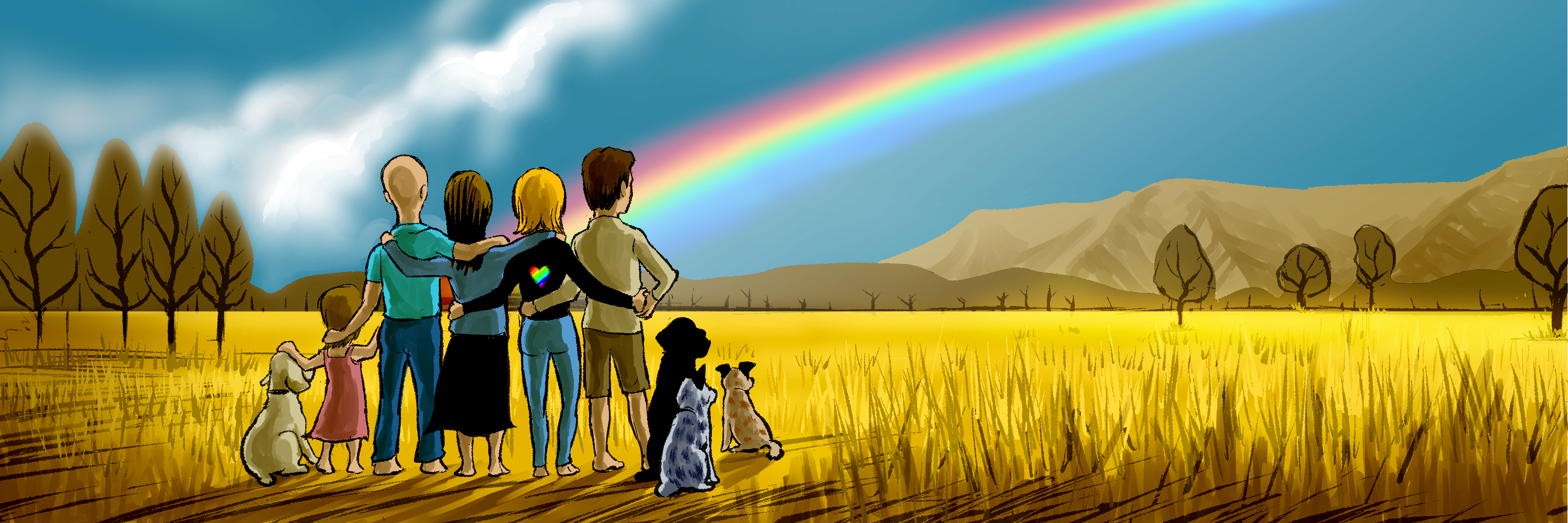
E N D
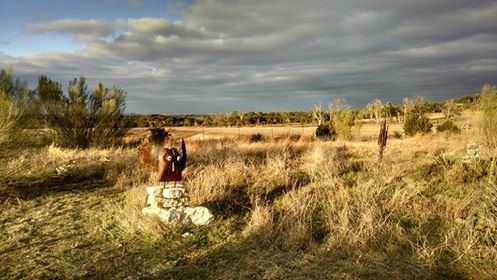
Backyard in the Hill Country
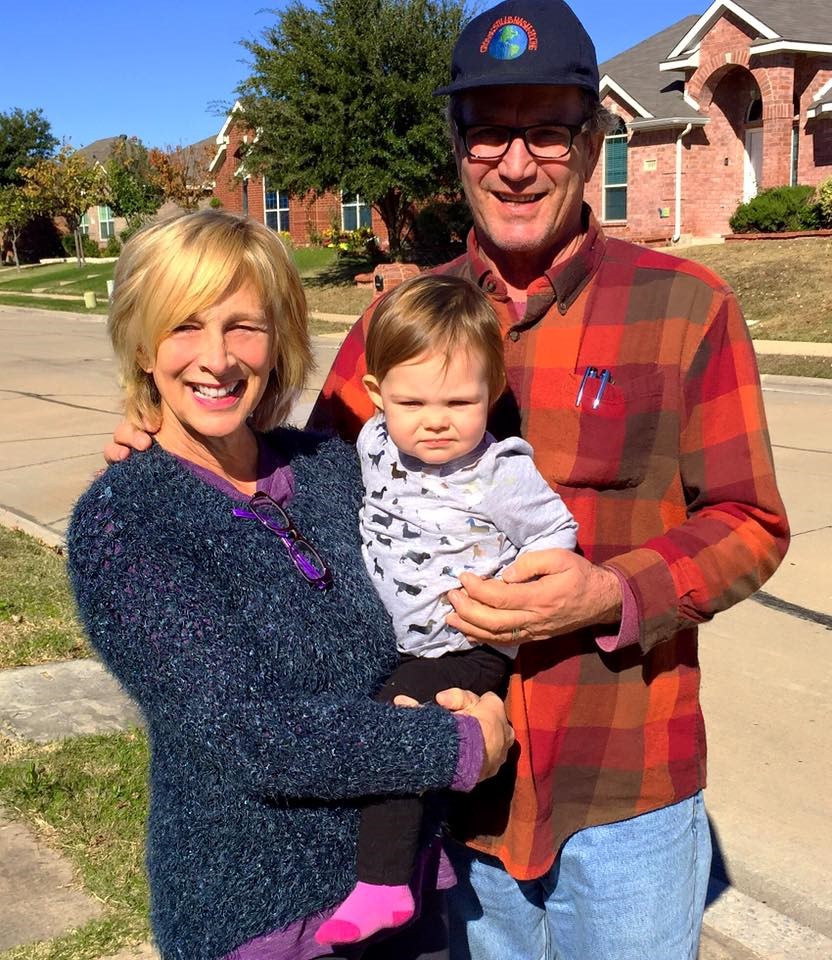
Happy grandparents!
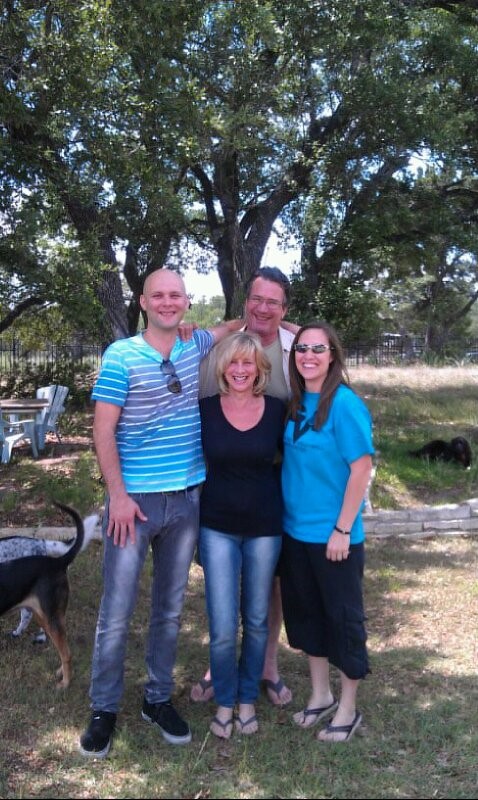
Mary, Michael (husband),
and children Sten and Sarah
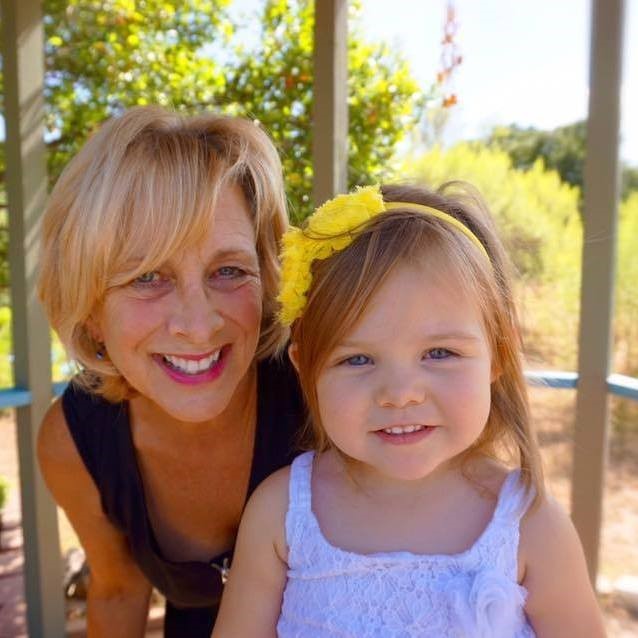
With granddaughter Julia
To learn the impetus behind Fireside, click here or here, and please join us again next Wednesday for another chat.
###